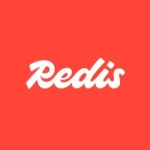What is our primary use case?
I have used MongoDB Atlas for my personal side projects as a database, and I have also used it as an infrastructure-as-code (IAC). In my apps, I have used the API to manage and create new databases programmatically. At my workplace, we use MongoDB Atlas for database management, access management, and configuration using Microsoft.
How has it helped my organization?
The key feature of MongoDB Atlas that has been helpful for us is the ease of deploying new databases. As a SaaS product, we don't need to worry about the infrastructure for on-premises servers or maintaining them. Additionally, MongoDB Atlas allows us to connect to our cloud, whether it's Azure, GCP, or AWS. This means we can manage these resources within our own cloud environment, change security rules, and integrate with other cloud resources as needed.
There are more than one hundred users in my organization.
What is most valuable?
I find the cluster demonstration and APIs to be the most valuable features of MongoDB Atlas. The APIs allow me to programmatically make changes to the environment. Additionally, the interface is user-friendly and easy to navigate. Another feature that I find useful is the separation of projects, which allows for different projects to have their own settings.
What needs improvement?
One improvement that I would like to see is a feature to export changes made in the environment, such as creating a new user. MongoDB Atlas should provide a way to export this action programmatically, so that we can easily integrate it with our IAC tools and deploy it afterwards.
For how long have I used the solution?
I have been working with MongoDB for around six years now, and have been using MongoDB Atlas since it was launched. I believe it's been about two years since I started using Atlas, but I can't recall the exact time.
What do I think about the stability of the solution?
It is a very stable solution.
What do I think about the scalability of the solution?
MongoDB Atlas is scalable and it offers several features for a DB as a service.
Which solution did I use previously and why did I switch?
We have used Azure SQL in the past, but it's not the main use in projects in the organization. We have also used MongoDB Atlas for their project, and Oracle DB is used in the organization as well.
How was the initial setup?
The initial setup was very easy. We didn’t need any expert to set up the solution.
What about the implementation team?
For my personal projects, I mainly use the UI interface of MongoDB Atlas, as well as the APIs. I write code that connects to the APIs and makes changes to the environment, such as creating new databases and managing security settings. In an enterprise setting, we typically have an administrator who uses the user interface to manage the environment, so there's not as much need for a specific deployment process.
What was our ROI?
There is some ROI because we don't need to have a separate operations team to maintain servers physically. MongoDB Atlas eliminates the need to worry about physical things like energy and space, as they are managed by the cloud provider.
What's my experience with pricing, setup cost, and licensing?
Which other solutions did I evaluate?
I prefer GCP because it's free and has great features related to artificial intelligence and the network is also very good. However, Azure has the best interface that is easy to use and deploy. It has ERM templates, which are JSON templates used to define resources that can be deployed, making it easier to work with. In contrast, GCP lacks such templates and some APIs are not easy to use.
What other advice do I have?
I've had a very positive experience using MongoDB Atlas so far. It's easy to use, and scalable, and the cloud-based option is very convenient. Overall, I would definitely recommend it to others looking for a database solution.
I would advise learning some SQL concepts to use MongoDB Atlas correctly. MongoDB Atlas is a cloud-based platform that provides a managed database service for MongoDB, a NoSQL database. Additionally, it is important to have network knowledge, specifically for administrators.
Overall, I would rate it a ten out of ten.
Disclosure: My company does not have a business relationship with this vendor other than being a customer.
















